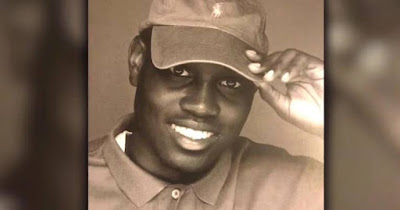Ahmaud Arbery killing viral videos draws attentions
The footage released this week shows Arbery jogging down a narrow two-lane road. A white law enforcement officer and his son, whose truck is stopped nearby, shoot Arbery within seconds of confronting him.
 |
| Arbery's shooting draws outrage |
Tension surrounding the viral video of 25-year-old Ahmaud Arbery being shot just outside Brunswick, Georgia, is what prompted prosecutors to request a grand jury to consider charges, according to many social justice activists.
Supporters will gather virtually Friday to mourn Ahmaud Arbery, a black man who was fatally shot while jogging in February, by putting on their sneakers and posting on social media to say #IRunWithMaud.
Arbery, 25, was jogging in a neighborhood outside Brunswick, Georgia, on February 23 when he was chased down by a former police officer and his son who were armed, authorities said. Arbery was shot after struggling with the son over his shotgun, according to a Glynn County Police report. The former officer later told officers that he thought Arbery looked like a suspect in a series of nearby break-ins, the report said.
Beyond the calls for justice, however, the manner by which King released the footage to the public has prompted a backlash. Although he prefaced the release of the video with a separate tweet, King drew immediate anger for sharing the graphic depiction of Arbery’s death without an explicit warning of its contents.
To see the video click here
According to Monnica Williams, clinical psychologist and director of the Center for Mental Health Disparities at the University of Louisville, social media and viral videos can worsen trauma and stress.
“There’s a heightened sense of fear and anxiety when you feel like you can’t trust the people who’ve been put in charge to keep you safe,” she said following Sterling’s death. “Instead, you see them killing people who look like you”.
Williams noted that graphic videos can prompt “vicarious trauma” that exacerbates the lived experiences of racism, and effects can even be reminiscent of post-traumatic stress disorder.
“Combined with the everyday instances of racism, like micro-aggressions and discrimination, that contributes to a sense of alienation and isolation. It’s race-based trauma,” she said.
In a 2018 report published in the Lancet, researchers determined that when police officers in the US kill unarmed black people, it damages the mental health of black Americans living in the same states.
To see the video click here


Comments
Post a Comment